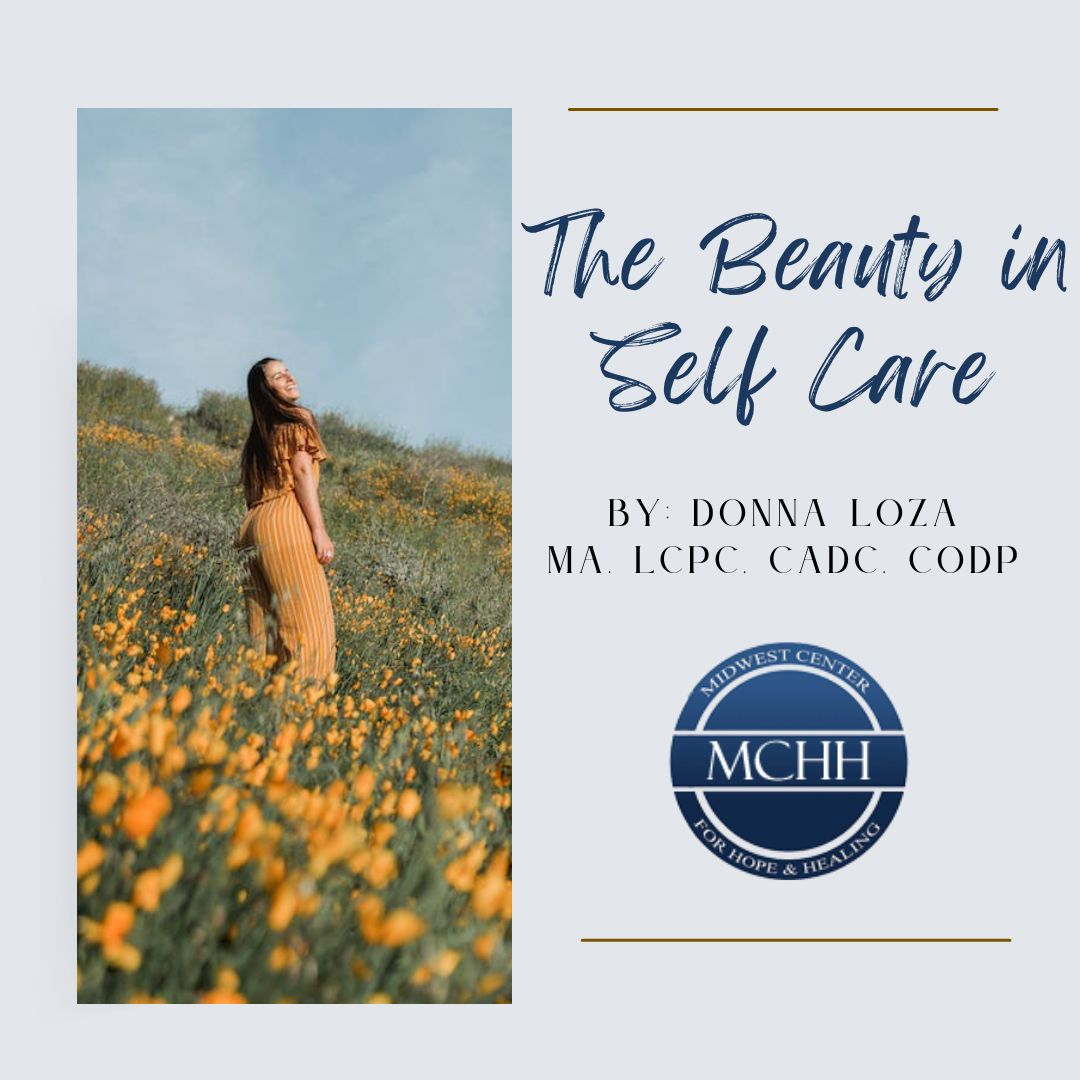
By Donna Loza, LCPC, CADC, CODP I
We are all oversubscribed. We are pulled in many directions. Some of us might even have multiple jobs we are juggling; we also have children who need us and the list goes on and on. In this, we can become anxious, overwhelmed and even depressed that we just can’t seem to keep up. For many, we need a break but we don’t know where to start.
In the 1980’s commercial, Calgon Take Me Away, there is a woman who is deeply frustrated by her life, the baby is crying, the boss is yelling and the traffic isn’t on her side. She moans, “Calgon, take me away!” It’s an advertisement for liquid bath soap which allows this mom to sink in a tub full of soapy bubbles and relax a bit without interruptions.
In a more recent commercial, the all-new 2020 Lincoln Aviator with McConaughey, he is featured in a remote, wintery scene with mountains and a lake; he is ice fishing while enjoying the luxury of his vehicle. This commercial isn’t just about the car but about the experience you could have with this car and how it allows one to escape and enjoy some much-needed peace and quiet in nature, where time just stands still.
Articles, blogs and books have been written on practicing self-care. What is it truly? What does it mean to take time for yourself.? Some folks might think it’s selfish to pull back from chores, activities or events. Some folks might place some boundaries with their time as well as with others while reflecting on how to truly recharge one’s batteries. The reality is, we only have so much time, we are only capable of doing a certain number of things well.
Self-care is recognizing the emotions that are being felt that are triggering an either fight, flight or do-nothing response. Self-care is noticing that we are not performing or being able to provide our full attention to a chore/assignment or a friend/loved one. Self-Care is the ability to reflect on what it is that we need to do for ourselves in order to be able to go back to a situation and be fully present and engaged.
In the article, “Why Multitasking Does More Harm Than Good,” Dr Kevin Madore, a neuroscientist from Standford University states, “When you have competing sources of attention, your task performance is often going to be reduced.” Discover Magazine May 10, 2021. In other words, when we have too many things (people, activities, to do lists) vying for our attention, our ability to function at 100% actually dwindles which then causes poorer performance and mental health issues. Our brain suffers from “attentional bottleneck,” which allows only selective mental capabilities to occur one after another.
In practicing self-care, we tend to self. Our goal here is we want to be both mentally and emotionally stable. We do this by asking ourselves, what are our daily roles in life? Is it being a parent, a spouse, employee, or a friend. The second question to ask ourselves; are we functioning well in those roles or do we need help? Are there areas that we need to clean up, sell something, have a garage sale, downsize homes, limit the number of responsibilities we need to “do” in our lives. Lastly, are there ideas, goals or dreams that we have been holding onto that we need to just, let go? Do we need to reset our priorities and build new dreams and goals for ourselves. If so, we can give ourselves permission to change what we can and let go of what we can’t continue to do.
Some ideas to building a life of self-care:
- Taking a walk or exercise – can improve creativity and can help bring some clarity to problems. Walking helps release the neurotransmitters, endorphins, endocannabinoids and dopamine. It promotes neuroplasticity (the brain’s ability to change itself), and increases oxygen supply to your brain.
- Limit Distractions – can mean placing a boundary on people, places and things, that can distract us from our goals. It might mean seeking out a quieter work space, switching your phone off, turning off notifications and alarms and saying, “no” to others – your self-care is reason enough. Remind yourself that your needs are as important as anyone else’s.
- Time in Nature – has proven to lower blood pressure and stress hormone levels, reduce nervous system arousal, enhance immune system function, increase self-esteem, reduce anxiety and improve mood. Check out www.dupageforest.org/places-to-go/forest-preserves.
- Engaging in Mindfulness – can help you notice the times when you’re multitasking. It can assist in helping to focus and pay attention to one thing at a time. How to Train a Wild Elephant and Other Adventures in Mindfulness: Simple Daily Mindfulness Practices for Living Life More Fully and Joyfully by Jan Chozen Bays, MD.
- Keep up with self-care, even when you are not feeling it – get out of bed, open the shades/blinds to the light, taking a shower/bath, can help mentally and emotionally prepare oneself to greet the day. You might even find yourself smiling. 😊
